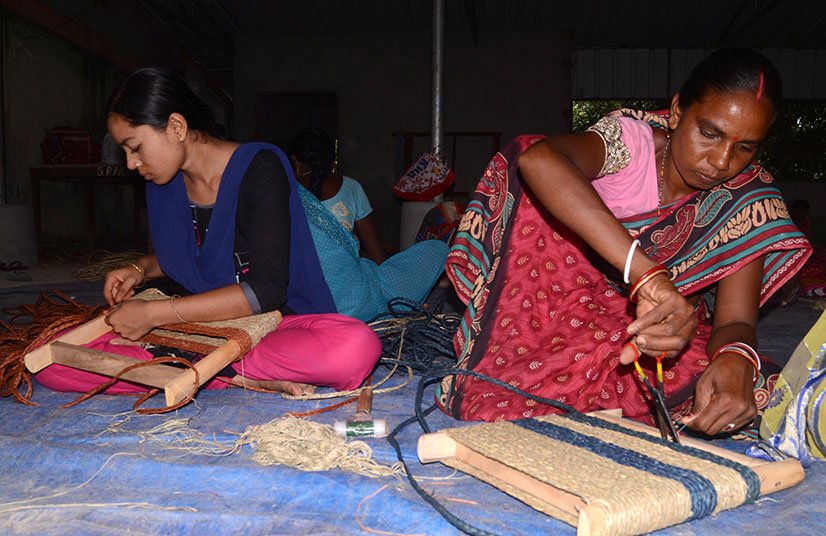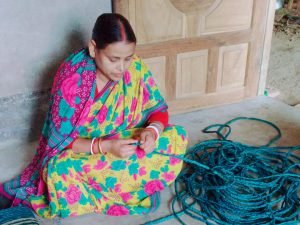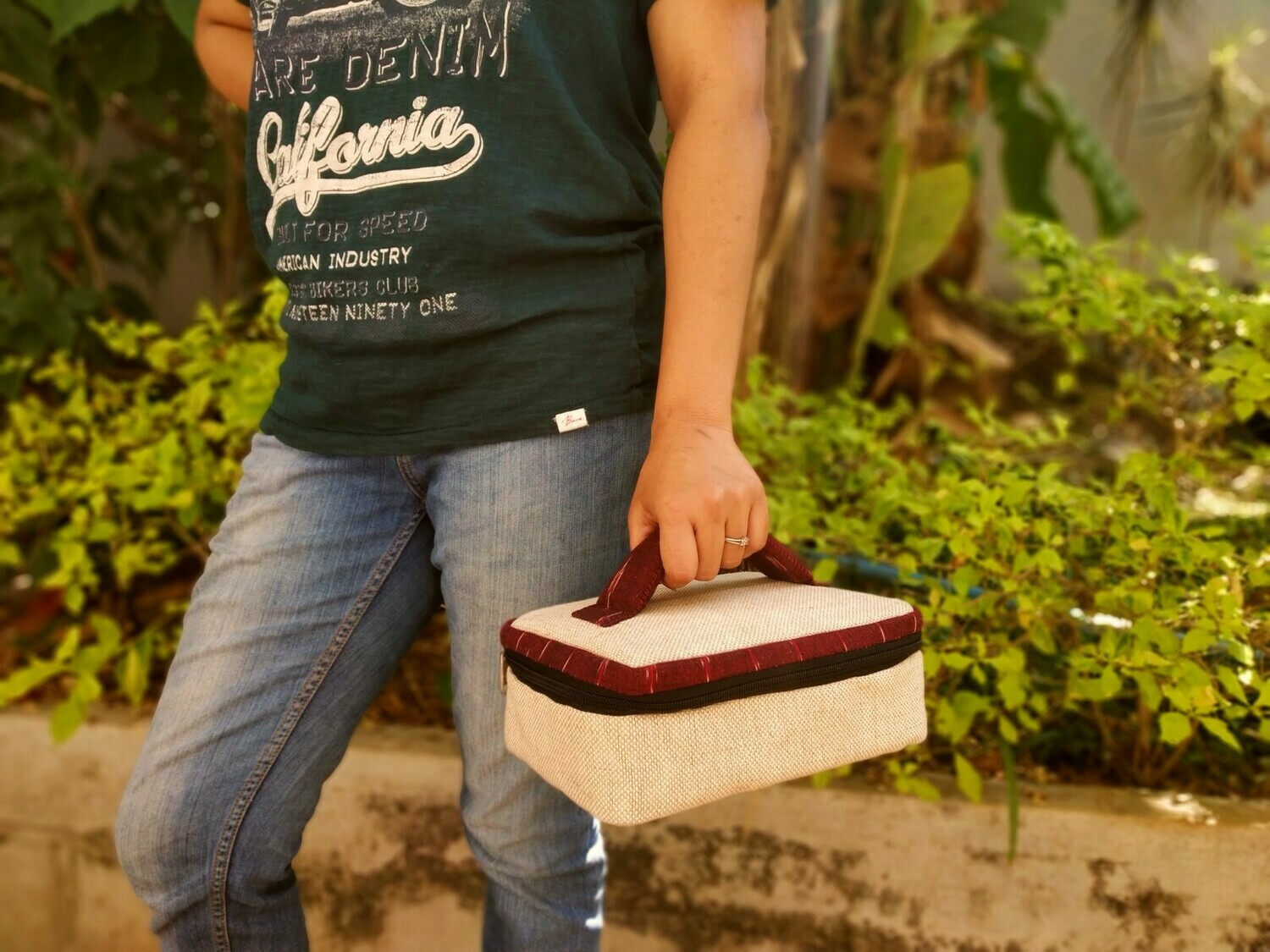Sabai Grass
SABAI GRASS is one of the fine natural fibres that has the potential to be coloured or dyed. The local individuals are dependent on the collection of a variety of leaves and grasses. These leaves and grasses are the main source of income for the local individuals for a period of time. The only product made from Sabai grass was ropes. Now it is used to make baskets, cots, coasters, decorative boxes, wall hanging and furniture.
Rectangular Ikat Jute Lunch Bag
Carry your meals in eco-friendly style with our Ikat Jute Lunch Bag. Featuring a vibrant Ikat design, this lunch bag combines traditional artistry with practicality, making it the perfect sustainable solution for your daily meals.
- Eco-friendly Material: Made from durable, natural jute, this lunch bag offers an environmentally conscious alternative to single-use plastic bags.
- Ikat Pattern: Adorned with a vibrant and intricate Ikat design, adding a touch of cultural beauty to your lunch break while keeping your meals secure.
- Durable & Lightweight: The strong jute material ensures the bag is built to last, while its lightweight construction makes it easy to carry.
- Comfortable Handles: Equipped with sturdy handles for easy and comfortable carrying.
- Versatile Use: Perfect for carrying lunch to the office, school, or outdoor activities, and a great eco-friendly gift for friends and family.
Specification :
Material : Ikat and Jute
Size in cm - 22.5 x 15 x 10
*Color May Vary
Making Process
The process of Sabai Grass is done in the Easter and Central part of India. Popularly known as Sabai is one of the old techniques of Indian culture.
The steps followed in Sabai Grass process is given below:
- The grass is cut from the Peepul Tree.
- The bundle of grass is placed in the sun for 3 to 4 days for drying.
- Once the grass is dried, the bundle of grass is cut in layers.
- Then weaving is done.
- Now finally painting and stitching is done as per the product requirement.

Beneficiary

Mirdolo mahato
Mirdolo mahato is from a family of farmers. She was trained in the Sabai making process and now independently can manufacture Sabai products. She is married and has three children. Her husband also helps her in the process. This interest in making the Natural Fibre product has made her one of the bread winners of the family. She earns around Rs. 300 per day

